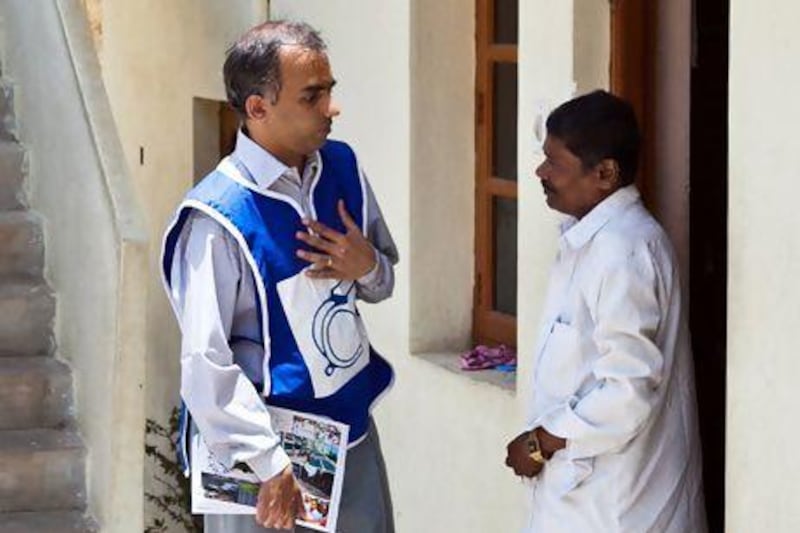BENGALURU // Ashwin Mahesh is not your average Indian politician - and he is counting on that to win him a seat in the state legislature today.
Born and raised in Karnataka, he moved to the United States in the early 1990s and lived there for more than a decade, completing a doctorate in geophysics and then working for the National Aeronautics and Space Administration.
Mr Mahesh moved back to India in 2004 and decided that his experience would be better utilised trying to improve the quality of public life.
Mr Mahesh, 43, will contest the Karnataka assembly elections from the Bommanahalli constituency in Bengaluru. He is part of a small but growing number of young professionals across India who, frustrated with poor and corrupt governance, have decided to run for public office.
Most of these candidates are running as independents or, like Mr Mahesh, on the platforms of small parties such as Lok Satta, which are unallied to behemoths such as the Indian National Congress or the Bharatiya Janata Party (BJP).
"What has happened is, of late, development demands have peaked, and people are migrating to politics to solve these problems, whereas earlier, the need was perhaps not as urgent," Mr Mahesh said.
It was a good thing, Mr Mahesh said, that "people are going at it independently, because there's no evidence that working within a large party gives you space to do good work".
But independent and small parties are up against significant odds, he admitted. Gesturing around his office - located in a bungalow on a quiet street - he said: "Resources are the biggest issue. No one can deny that."
After he returned to India, Mr Mahesh nurtured an interest in urban policy, developing public information systems that improved traffic management systems, bus routes and other public services.
"In India, cities and city systems are becoming more and more important," he said. "And we worked on the premise that if you bring to the surface enough information about how a city works, you can understand problems better and respond to them."
One of Mr Mahesh's most prominent achievements was designing Big10, a direction-based bus service that improved the efficiency of some major bus routes in Bengaluru.
Rajeev Gowda, a professor at the Indian Institute of Management in Bengaluru and a member of the Congress party, said Mr Mahesh's ideas earned him a good reputation in the field of urban policy.
"He has always shown a certain innovative way of looking at urban problems and solutions," Mr Gowda said.
Mr Mahesh's first political campaign came last year, when he ran for the upper house of the Karnataka assembly.
He finished fourth, but as the Bangalore Mirror newspaper noted at the time, if every one of the voters Mr Mahesh enrolled for voting had turned up to cast their ballot on election day, "he would have won by a thumping majority".
Lok Satta lacks campaign funding compared to the deep pockets of its rivals.
"The bigger parties have the kind of money where they will offer short-term inducements such as liquor or money or laptops or bicycles, instead of giving real, long-term governing solutions," said Karthik Chandra, who works in Lok Satta's research and advocacy division.
But Mr Mahesh pointed out that "the guy who spends the most does not always win. And elections are different when you change candidates, because you can draw out a new set of voters or give existing voters new choices".
His campaign is not burning a lot of money, but it is spending on getting his message out through radio advertisements, the internet and hoardings.
"The lesson of Indian politics has always been that brand presence is more important than delivery, which is why the Congress and the BJP's candidates do well," he said.
"But I think candidates also need to offer reasonably good answers to complex questions, and I believe that is what we are doing."
[ ssubramanian@thenational.ae ]





